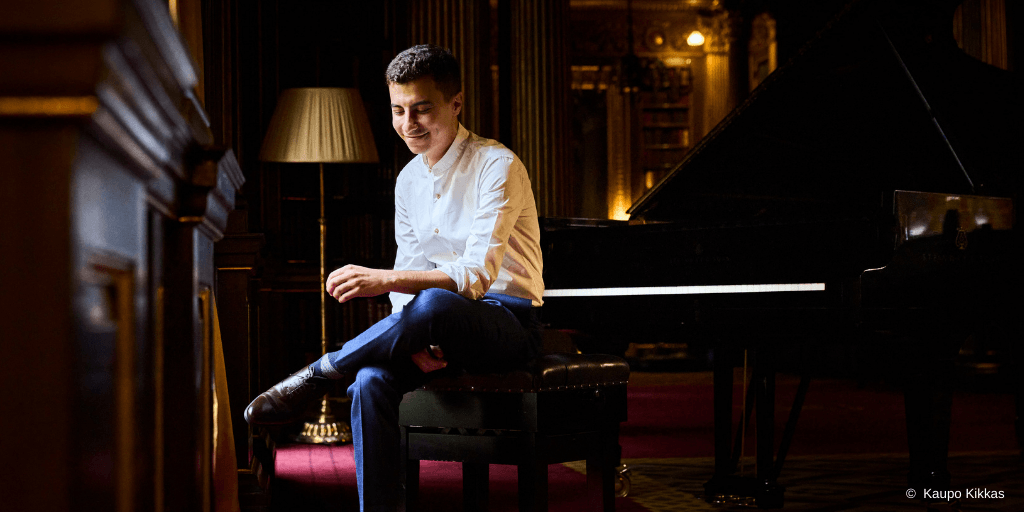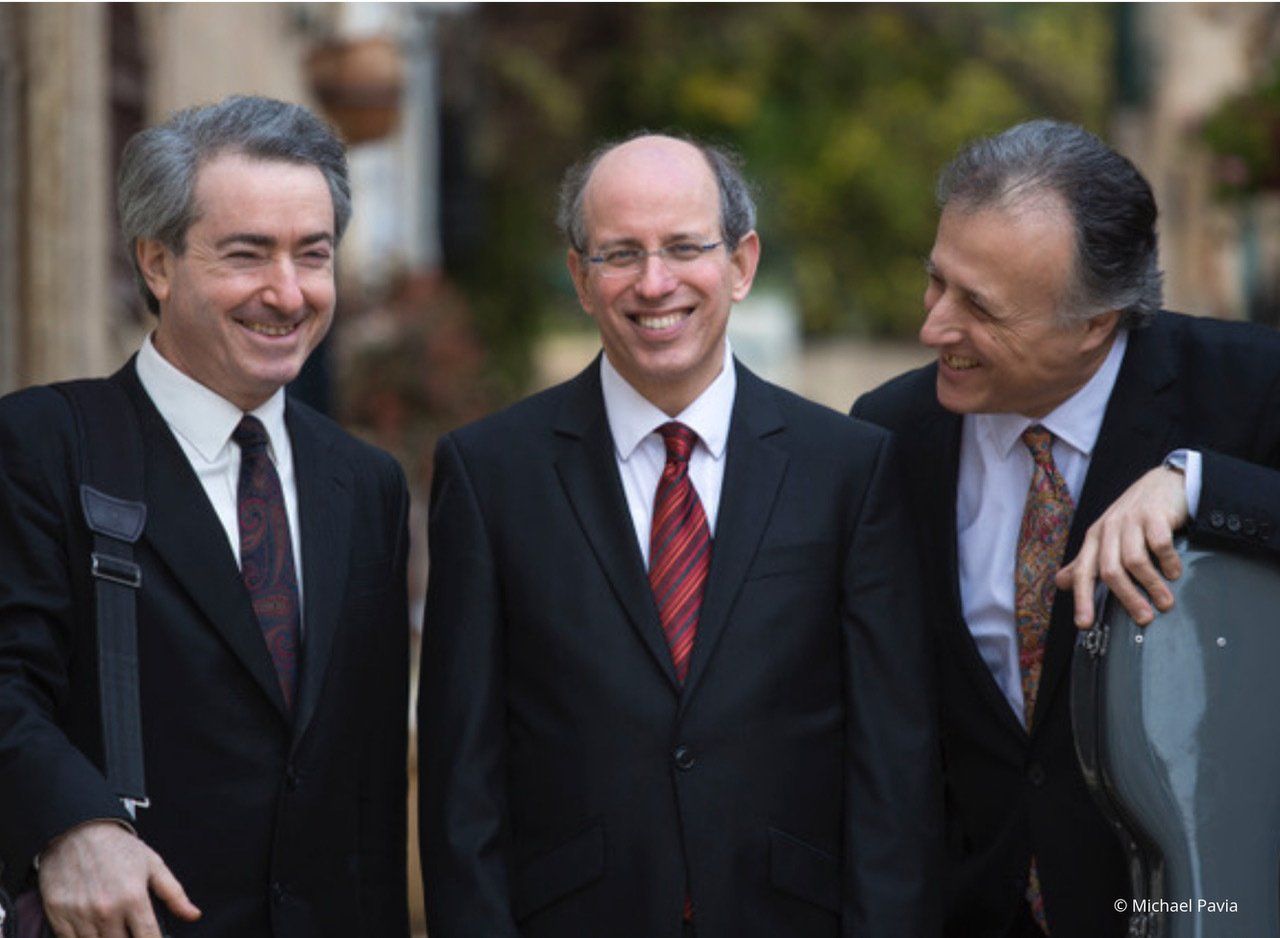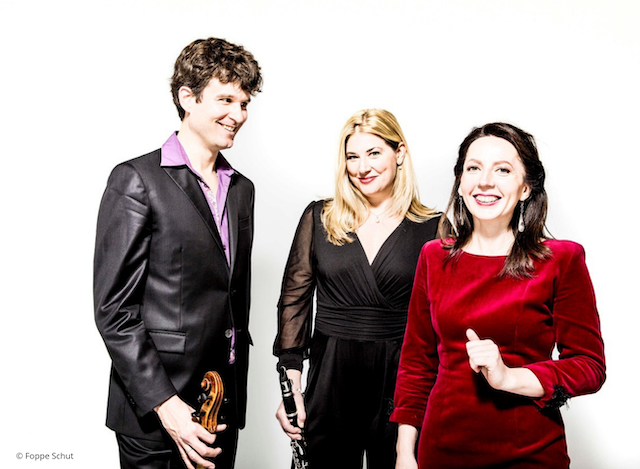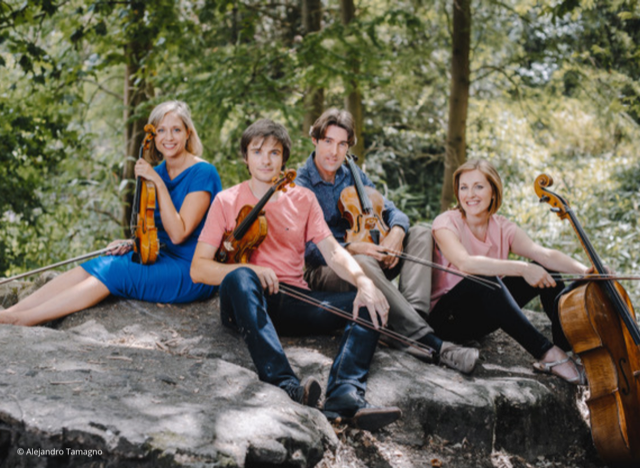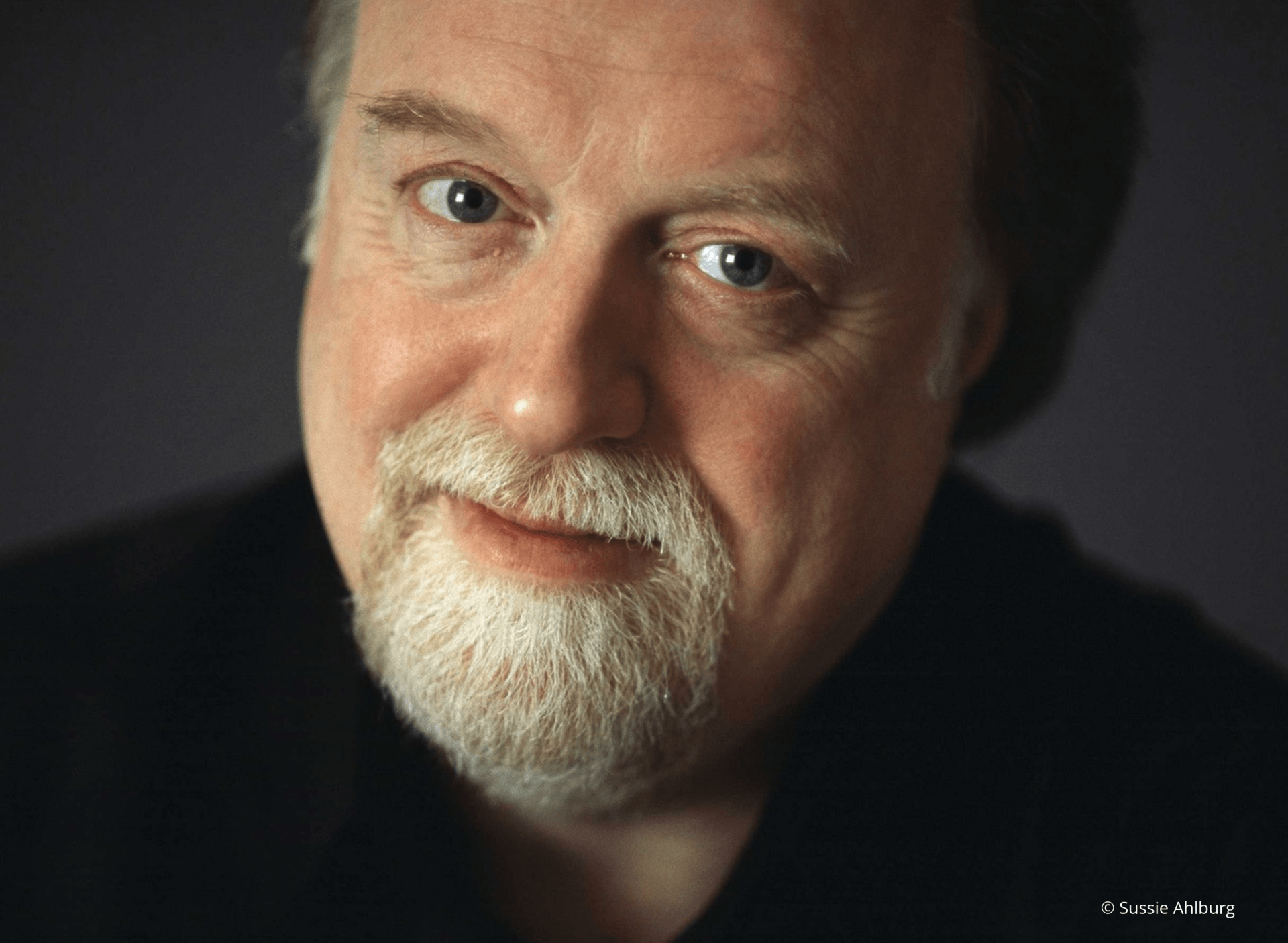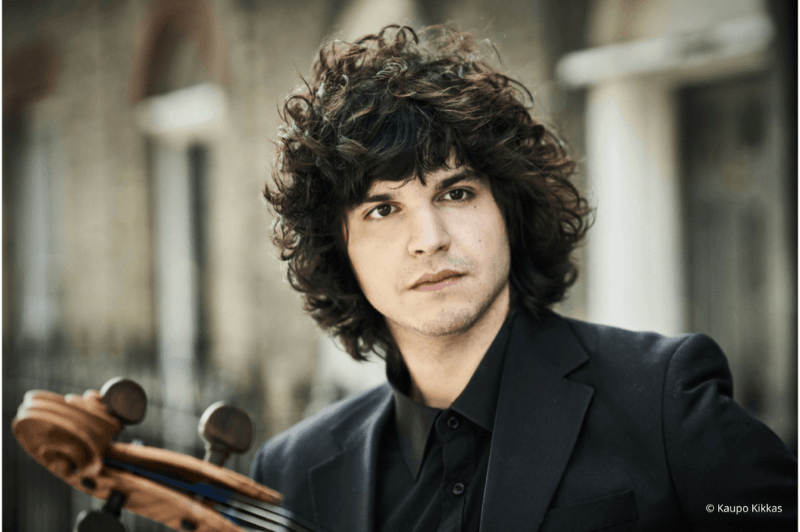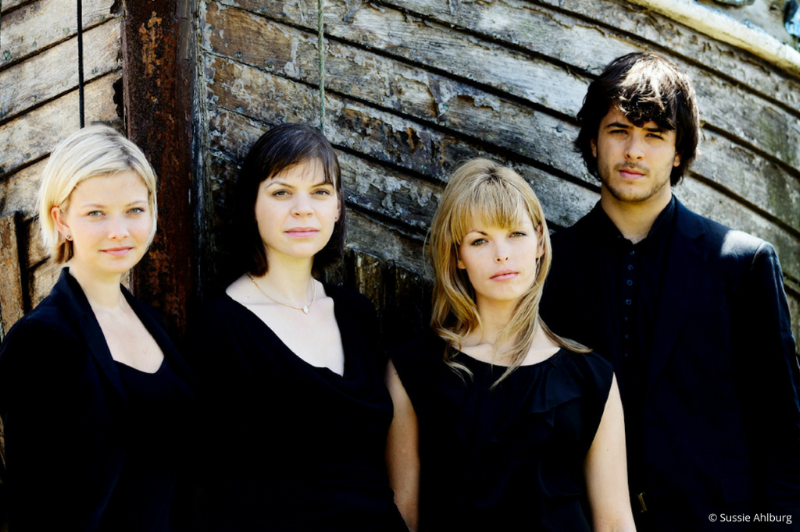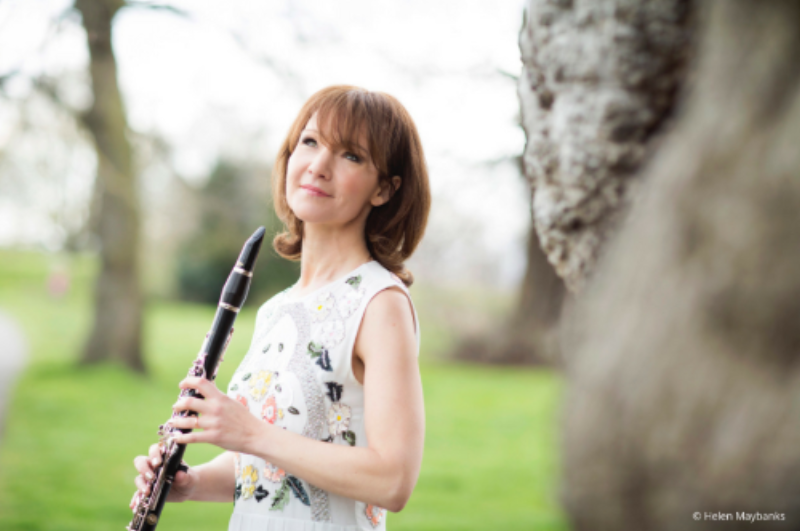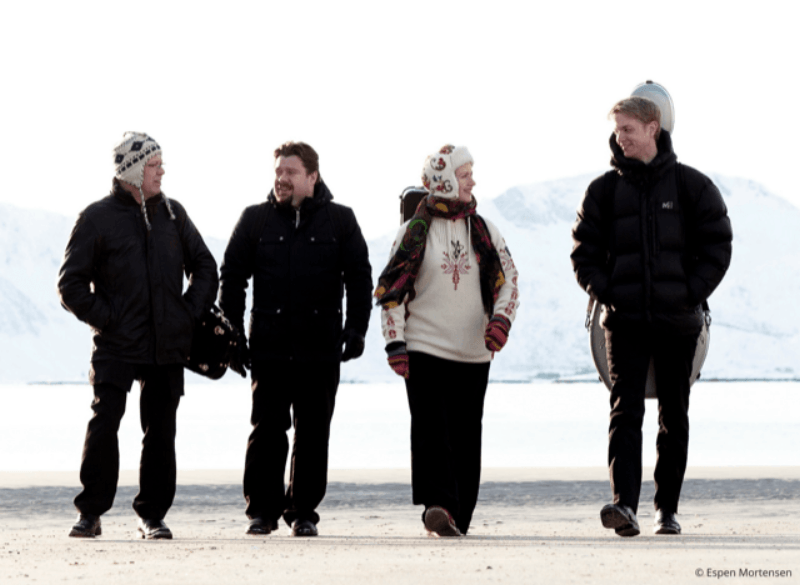Pianist Leon McCawley will play for us in March!
Thursday 21st March 2019 at 7.30pm
Leon McCawley leapt to prominence when he won both First Prize in the International Beethoven Competition in Vienna and Second Prize in the Leeds International Piano Competition in 1993. Since then he has played with the great orchestras and conductors of the world, and played a number of times at the Proms. He is currently Professor of Piano at the Royal College of Music.
Book your tickets online now! - click hereto book online.
Find out more about Leon
and watch a video of his playing here.
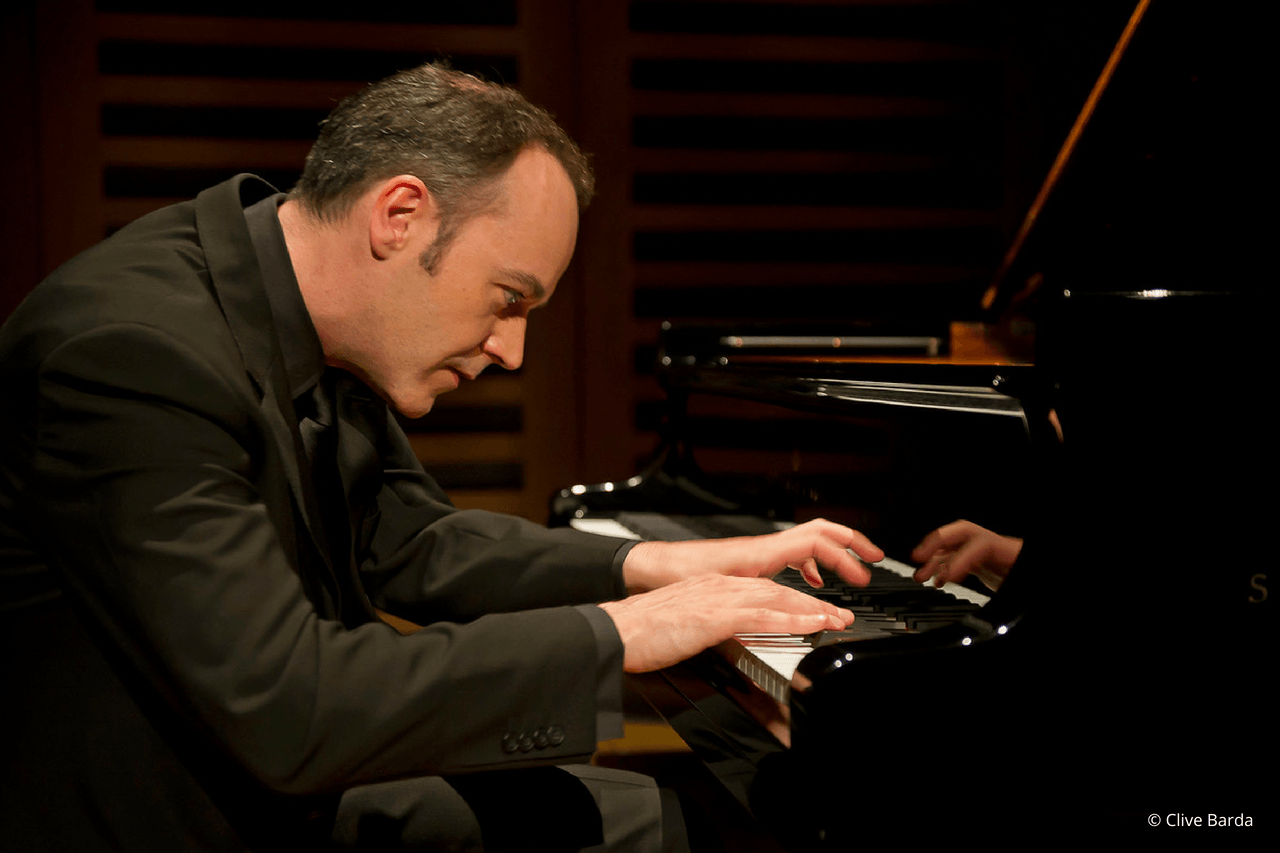
Find out more about the programme for our concert:
Sonata No 1 in C major, K279 Wolfgang Mozart 1756-1791
i. Allegro; ii. Andante; iii. Allegro (composed 1774)
Mozart showed prodigious ability from his earliest childhood. Already competent on keyboard and violin, he composed from the age of five and performed before European royalty. At 17, he was engaged as a court musician in Salzburg. During his final years living Vienna, he composed many of his best-known symphonies, concertos, and operas. The circumstances of his early death have been much debated, and dramatised in the film ‘Amadeus’.
The first movement opens with a turning figure for the left hand, which forms the basis for much of this movement. After a repeat of the opening two bars, an Alberti bass is introduced for the left hand, whilst the right hand plays the melody (an Alberti bass is a repeated broken chord accompaniment where the notes of the chord are presented in the order lowest, highest, middle, highest; it helps to create a smooth, sustained, sound on the piano). The Andante is full of expressive shading. The Allegro is in 2/4 time, and features an unusually active part for the left hand, another extended development section, and a surprising close with two firm chords.Sonata No 32 in C minor, Op. 111 Ludwig van Beethoven 1770-1827
i. Maestoso: Allegro con brio ed appassionato; ii. Arietta: Adagio molto, semplice e cantabile (composed 1822)
Beethoven was a German composer and virtuoso pianist. A crucial figure in the transition between the Classical and Romantic eras in Western music, he remains one of the most famous and influential of all composers. His best-known compositions include 9 symphonies, 5 piano concertos, 32 piano sonatas, and 16 string quartets. Born in Bonn, he lived there for 22 years. Befriending Haydn, he moved in 1792 to Vienna where he studied with Haydn. In about 1800 Beethoven’s hearing began to deteriorate, and by the last decade of his life he was almost totally deaf.
The introduction, with its double-dotted chords, prepares the way for the energy and conflict of the main Allegro. The movement finally comes to rest, pianissimo, in the key C major. The opening of the Arietta has moved many to tears; Beethoven, completely deaf, knows this is the last he will write for his beloved pianoforte. The simplest of themes is subjected to ever more complex subdivisions of metre, until by the third variation the calm of the original is transformed into euphoric abandonment (with an uncanny foreshadowing of 20th-century boogie-woogie). In the final variation the theme moves into the upper register, intertwining itself around a continuous trill. The music becomes ever more ethereal, followed by a short ending in a mood of calm contentment.++++++ Interval of 25 minutes ++++++
‘Abegg’ Variations in F major Op. 1 Robert Schumann 1810-1856
i. Thema (Animato); ii. 3 Variations; iii. Cantabile; iv. Finale alla Fantasia (Vivace) (composed 1829)
Schumann was born in Saxony, the fifth and last child of his parents. He began to compose before the age of seven, but his boyhood was spent in the cultivation of literature as much as music – undoubtedly influenced by his father who was a bookseller, publisher and novelist. He had intended a career as a virtuoso pianist until a hand injury (self-inflicted from a contraption designed to aid the strength and agility of his fingers) made this impossible. He became a composer and music critic. Schumann suffered from a mental disorder, first appearing in 1833. After a suicide attempt in 1854, Schumann was admitted to a mental asylum near Bonn, where he died two years later.
The dedication to the fictitious ‘Mademoiselle Pauline Comtesse d’Abegg’ is believed to conceal the identity of Meta Abegg, a dancing partner Schumann had met at a Mannheim ball. The theme, in waltz tempo, is straightforward, but the three delightful variations with their rapid passage work, syncopated rhythms, and rapid triplet figures, showcase Schumann the composer and the pianist.
Klavierstücke Op. 119 Johannes Brahms 1833-1897
1 Intermezzo, B minor; 2 Intermezzo, E minor; 3 Intermezzo, C major; 4 Rhapsody, E♭major (composed 1893)
Brahms was a German composer and pianist. Born in Hamburg into a Lutheran family, he spent much of his professional life in Vienna.
The falling thirds of the first Intermezzo provide a resigned quality often associated with Brahms’ works. The second piece employs the variation form. The central ‘waltz’ section provides a contrast. The next quicksilver Intermezzo features the melody at the outset in the lower part of the right hand. The Rhapsody is notable for its “Hungarian” five-bar phrases. At the centre is a lyrical section. The recurrence of the main theme is cleverly presented in a hushed staccato variation, lending all the more force to its return in its original guise at the close.
Polonaise – Fantasie in A flat major Op. 61 Frédérik Chopin 1810-1849
composed 1846
Chopin was a Polish child prodigy, composer and virtuoso pianist. All his compositions include the piano, most for solo piano. He grew up in Warsaw and left Poland aged 20 to settle in Paris. After a failed engagement to a Polish girl, he maintained a troubled relationship with the French authoress George Sand from 1837-47. A brief and unhappy visit to Majorca with Sand was a most productive composing period. All his life, Chopin suffered from poor health and he died in Paris in 1849, probably of tuberculosis. Chopin's compositions, his status as a musical superstar, his love life and his early death have made him a symbol of the Romantic era.
The Polonaise-Fantasie was Chopin’s last extended work, written three years before his death. It is an exploratory, original work. Although the distinctive rhythm of the polonaise is present in the opening theme, elsewhere it is often absent, the ‘fantasy’ part of the title implying a feeling of rhapsodic improvisation. Through thematic recall and his innate sense of form, pacing and proportion, Chopin manages to achieve a cohesive whole.
Programme notes compiled from various sources.

